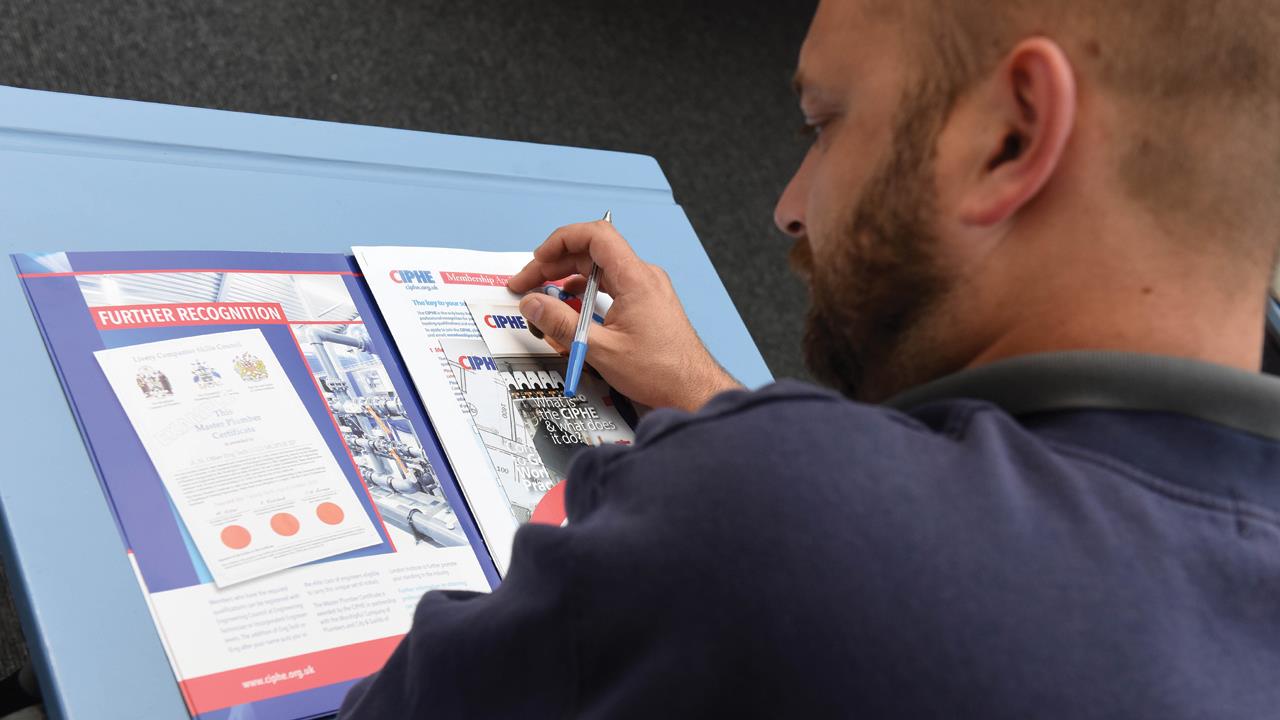


Kevin Wellman, Chief Executive Officer at the CIPHE, explains why CPD plays a vital role in the professionalism of the plumbing and heating sector.
Continuing Professional Development (CPD) is vital across all professions. In the plumbing and heating industry however, it takes on an altogether more significant role, given the safety implications of not maintaining excellence in professional standards.
In short, CPD is the practice of ongoing learning to keep you developing as a professional tradesperson. In an industry which is constantly changing, the benefits of keeping abreast of new legislation and working practices is, of course, hugely valuable.
CPD can also be used to refresh the skills you already have that, over time, may have become outdated or rusty. This can happen for a variety of reasons, from not performing a certain task for a lengthy period of time, or when working with an unfamiliar or new appliance.
What qualifies as CPD?
There are many ways to achieve CPD, a few of which might surprise you. At the Chartered Institute of Plumbing and Heating Engineering (CIPHE), we promote the fact that CPD can come in many forms, including attending training courses, seminars and exhibitions, to reading professional publications and mentoring employees and apprentices.
Even volunteering and being involved in the work of a professional body is CPD. For it to be most effective, it is necessary to include a variety of professionally relevant experiences within the CPD mix – much more than learning from a textbook.
Public safety
As an educational charity, safeguarding the vulnerable remains at the core of what we do. The number of incidents relating to poor workmanship – especially those concerning scalding and legionella – remains alarmingly high, and the promotion of CPD has a large part to play in combating this.
A recent report by Public Health England on the impact of Legionnaires’ disease in residents of England and Wales revealed 1,070 cases, resulting in 77 deaths from 2014-2016. The Royal Society for the Prevention of Accidents has also stated that, on average, 15 pensioners die from scalding every year. Water safety is clearly a very important issue, especially for vulnerable individuals, yet it rarely gets the attention that its severity requires.
This is an area in which CPD can have a significant impact. A more comprehensive understanding of the causes of legionella can help to combat the prevalence of the disease. Likewise, further training on how to avoid scalding would have a huge impact on public safety, at a relatively low cost.
There is currently a ‘fit and forget’ mentality surrounding the installation of thermostatic valves (TMVs), especially as aesthetic considerations often determine where they are positioned. It might be tempting to hide TMVs well out of view, but relatively easy access is required, because engineers need to check them routinely.
It isn’t a case of ‘out of sight, out of mind’, and we need to start to encourage more of a maintenance culture in the plumbing and heating industry.
Licence to practice
The issue of unqualified individuals taking advantage of homeowners should concern everyone in the industry. It’s a major issue because, with the exception of gas installers, anyone can establish a plumbing and heating business, regardless of relevant qualifications.
This has obvious implications for public safety. Key fixtures such as shower heads, taps, pipes in bathrooms, and anything that carries hot water in the home, have to be fitted by someone who knows what they are doing. It isn’t just a case of giving the industry a bad reputation – it’s a genuine danger to public health.
A licence to practice provides that vital signal to customers that they are employing a professional, someone who has the right skills and abilities to do the job to a high standard.
An engineer may have the vocational skills and plenty of experience, but a licence to practice provides a quality assurance that can distinguish them from less-qualified engineers.
We recommend that our members should obtain 30 hours of CPD per year, and those registered with the Engineering Council as EngTech, IEng, or CEng, when called upon, must submit their record for assessment.
The CIPHE is determined to continue the fight for professionalism and this is the reason why CPD is taken so seriously.
If you'd like to keep up-to-date with the latest developments in the heating and plumbing industry, why not subscribe to our weekly newsletters? Just click the button below and you can ensure all the latest industry news and new product information lands in your inbox every week.